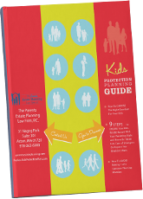As you prepare to welcome your new baby into the world, you’re likely focused on creating a safe and secure future for your growing family. Part of that preparation includes writing a Will, which is a vital step in ensuring your child is cared for and your wishes are honored. However, there are certain things that should never be included in your Will. Understanding what not to include can help you create a more effective and legally sound estate plan that truly protects your loved ones.
Here are some important things you should never put in your Will:
1. Funeral Instructions
It may seem natural to include your funeral wishes in your Will, but this is not the best place for them. Wills are often not read until after the funeral, which means your wishes might not be known in time. Instead, communicate your funeral preferences to your loved ones directly and consider creating a separate document that outlines your desires. Share this document with the people responsible for your funeral arrangements to ensure your wishes are followed.
2. Property with a Named Beneficiary
If you have assets like life insurance policies, retirement accounts, or payable-on-death (POD) accounts, these should not be included in your Will. These types of accounts allow you to name a beneficiary directly, and those designations take precedence over anything written in your Will. For example, if you name your spouse as the beneficiary of your life insurance policy, that policy will go directly to your spouse regardless of what your Will says. Make sure your beneficiary designations are up-to-date to reflect your current wishes.
3. Jointly Owned Property
Property that you own jointly with another person, such as a spouse, does not need to be included in your Will. When one owner passes away, the property automatically transfers to the surviving owner. For instance, if you and your partner own a home together as joint tenants, the home will automatically become your partner’s sole property when you pass away. Including jointly owned property in your Will can create confusion and unnecessary complications.
4. Specific Conditions on Gifts
While you might be tempted to include specific conditions on the gifts you leave in your Will (such as requiring your child to reach a certain age before receiving their inheritance), doing so can create legal challenges. Instead, consider creating a Trust to manage how and when your assets are distributed. For example, a Trust can stipulate that your child receives portions of their inheritance at different ages or upon reaching certain milestones, like graduating from college. This approach provides more flexibility and control over how your assets are managed.
5. Care Instructions for Your Pet
Your Will is not the right place to leave instructions or money for the care of your pets. If you want to ensure your pets are taken care of, consider creating a Pet Trust or naming a trusted person to care for your pets and leaving them funds directly. This allows you to specify how your pets should be cared for and ensures that the necessary resources are available immediately.
6. Digital Assets
In today’s digital age, it’s important to consider how your digital assets—such as social media accounts, online banking, and digital photos—will be managed after you’re gone. However, these should not be detailed in your Will. Instead, create a separate digital inventory to be included in your estate plan that includes a list of your digital assets, along with instructions for how they should be managed. This can include providing access information to a trusted person who can handle your online presence after your death.
7. Instructions for Long-Term Care
If you’re concerned about how your long-term care will be managed, your Will is not the place to outline these details. Long-term care planning should be addressed separately, typically through Advanced Healthcare Directives, a living Will, or a Health Care Proxy These documents allow you to specify your healthcare preferences and appoint someone to make decisions on your behalf if you’re unable to do so.
Why It’s Important to Avoid These Items in Your Will
Including any of the above items in your Will can lead to legal complications, delays, or even the invalidation of certain aspects of your estate plan. By knowing what should not be included in your Will, you can ensure that your wishes are carried out smoothly and that your loved ones are protected without unnecessary stress or confusion.
As you prepare for your baby’s arrival, let us help you create an estate plan that accurately reflects your wishes and protects your growing family. Schedule a Planning Session with our caring team today. We’ll guide you through every step of the process, ensuring that your estate plan is clear, comprehensive, and legally sound. Call us at 978-263-6900 or contact us online to schedule your Planning Session. Let’s work together to secure the bright future you envision for your family.












